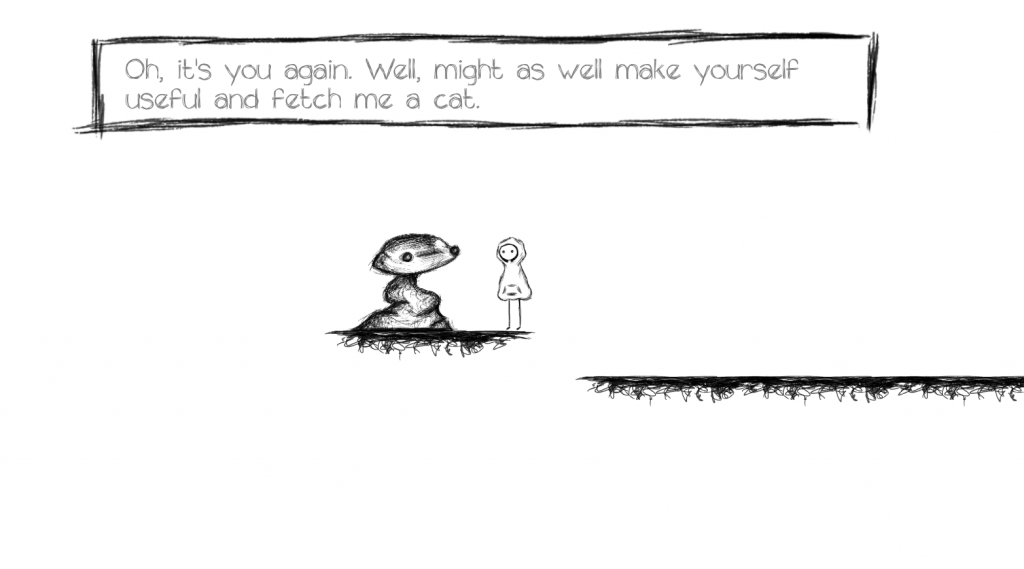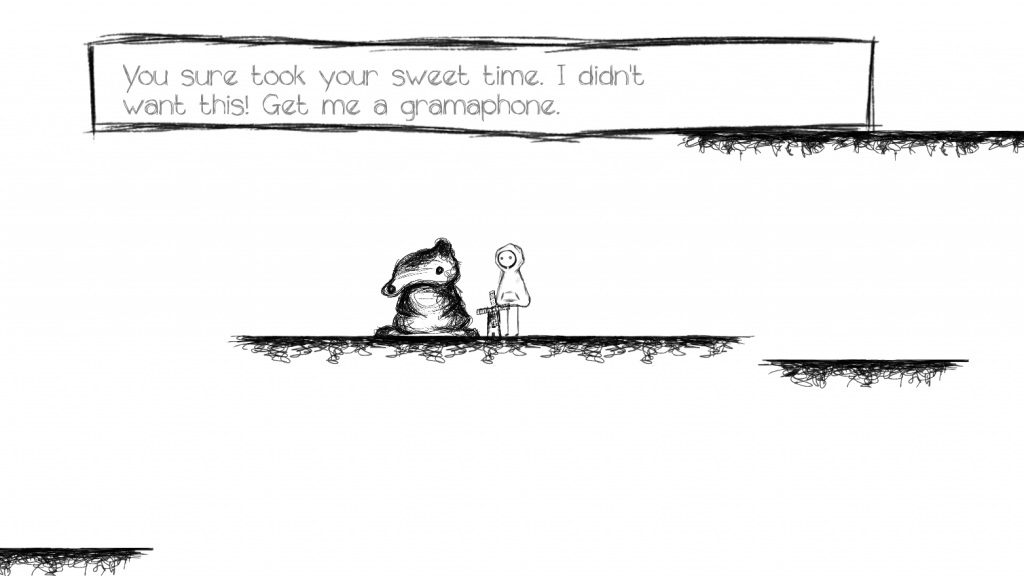by Sylvia Kosowski
Lost is a procedurally generated 2D platformer. The player can explore a randomly generated world in all four directions, occasionally encountering non-player characters who will provide quests which the player can attempt to complete. However, there is a catch: platforms, non-player characters, and items are deleted once they leave the main camera view. With such an unstable, ever-changing world, can the player character ever complete the quests it is given?
The game is meant to challenge the “quest” system common in many games by providing the player with quests that cannot be completed. It is very hard to give a non-player character the item they are asking for. And even if the player does manage to do this, the NPC receiving the item will act ungrateful toward the player despite the long toil it takes to deliver the desired item to the NPC. The player gets no reward for completing quests except for harsh words from the NPCs. Yet if the player stops moving and refuses to complete any quests, a scribbly cloud of depression will form above the player’s head and cover the screen until the player moves again.
These game mechanics are meant to all convey a sense of depression and a feeling of being trapped. The virtually endless nature of the game is meant to portray the player character’s inability to escape their situation. Whether they are completing endless, meaningless, worthless quests for the non player characters or standing still and letting the fog of depression cover everything, the player character is lost either way.
The game is best played in larger window sizes (i.e. 1920 x 1080, or however large your computer can manage) because something in Unity’s text system is weird and the text doesn’t resize properly in smaller window sizes.


